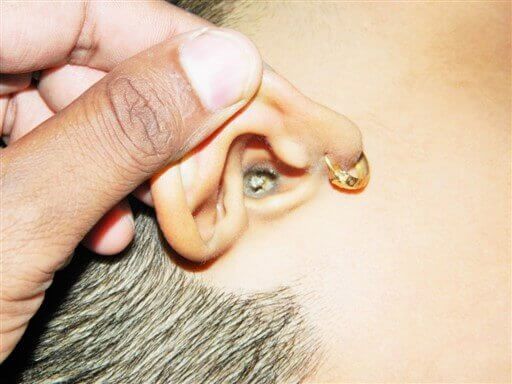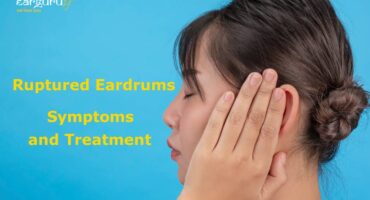Are you still wondering whether you actually have a Hearing Loss or you are unable to hear properly because of the noisy surroundings? Or is it simply due to someone speaking very softly? It is advisable to confirm whether you have a Hearing Loss and plan your next move.
Our advice is to consult an Audiologist or an ENT (Ear, Nose and Throat) Doctor for conformation. The Audiologist will confirm the type of Hearing loss. Readers can also read the article on detecting Hearing loss.
Who is an Audiologist?
An Audiologist is a trained paramedical professional who will conduct Hearing tests (Audiometry) to confirm whether you have a hearing loss or not. The Audiologist will study the results of the audiometry report and arrive at a conclusion. If the report does indicate loss, the Audiologist will determine if the hearing loss is temporary or permanent.
The Audiologist will diagnose the severity and type of hearing loss. Hearing loss severity, intensity or degree is broadly classified into three categories. The beginning stage is known as Mild Hearing Loss. The second stage is known as Moderate Hearing Loss. And the third stage is known as Profound Hearing Loss.
Types of Hearing Loss.
Let us read and know about the types of Hearing loss.
There are 3 primary types of Hearing Loss. Each type of hearing loss is caused due to a defect in the hearing organ. The defect in the hearing process affects some part of the normal hearing process.
- Sensorineural Hearing Loss.
- Conductive Hearing loss
- Mixed Hearing Loss
Sensorineural Hearing Loss.
Majority of the people suffer from Sensorineural Hearing loss. In simple terms, it is the damage to the sensory part or the Hair Cells and the nerves. The Hair cells convert the sound vibration into electrical signals. The Auditory nerves carry the signals to the brain. If the Hearing Loss is in early stages, the damage will be partial. The ENT Doctor in consultation with the Audiologist will decide the hearing loss treatment.
As on date the chances of a cure are remote. There are no medicines for regeneration of Hair cells. The Doctor may prescribe some medicines to strengthen the nerves. The medicines available cannot undo the damage completely. However, a lot of research to restore hearing is being done.
According to the latest research on tinnitus, the biopharmaceutical company Otonomy is conducting the phase 2 trial of the tinnitus drug Oto 313. It is intended to work in cases of cochlear related persistent tinnitus. Read our article Oto 313 Faqs to know the details.
Causes of Sensorineural Hearing Loss
Ageing or Advancing Age
The primary hearing loss cause is ageing. As we age, so do all our organs and parts. The nerves carrying the audio signals to the brain also weaken with advancing age. This reduces the ability of the nerves to carry the sound signals.
Noise Pollution
With increasing noise pollution people suffer from Hearing Loss earlier than usual. In our Country we have very less awareness of this form of pollution. Our motorists love to honk without a reason. We love to play loud music at high volumes in the streets during festivals. Our teenagers walk around with earphones plugged into their ears listening to loud music. And our factories do not follow the rules laid down by the safety department. The factory workers are not provided earplugs or ear protectors. Find out how you can protect your ears from Noise-Induced Hearing Loss.

Ototoxicity or Hearing loss due to Antibiotics
There are few cases where during extreme sickness Doctors prescribe high doses of antibiotics. At times the medicines are so strong that the side effects damage the tender hair cells and the nerves in the inner ear or the Cochlea. The doctor will try to reduce the side effects, however saving a life is more important.
Sickness
During childhood, some children suffer from Measles and Meningitis. The high fever during meningitis causes permanent damage to the hair cells.
Physical Injury or Accident
In case of an accident, a physical blow to the head near the ear can cause permanent damage.
Inherited or Genetic Factors
In few cases, children are born with hearing loss as they genetically inherit the same from their parents.
2. Conductive Hearing loss
The second most common type of Hearing loss is called Conductive Hearing loss. The conductive Hearing loss can be fully or partially treated by the ENT Doctor. As the name suggests, the sound waves are not conducted from the Outer Ear to the Inner ear due to various reasons.
Causes of Conductive Hearing Loss
Earwax Accumulation
Earwax secretion is a normal function of the ear. The earwax prevents the dust and foreign particles from going into the Ear canal. Some people excrete more wax than others. It is advisable to regularly Clean the Earwax. If the ears are not cleaned in time it tends to block the passage of the Ear Canal. There is also an increase in the chances of infection.

Infection and Allergies
During winter months it is easy to catch a cold. This results in throat infection. The infection due to the common cold causes swelling in the ear and in some cases there is fluid accumulation as well. This blocks the sound waves from reaching the Inner Ear.
Ear Canal Blockage By A Foreign Object
At times foreign objects get stuck in the ear. It is advisable not to use any foreign object to clear the earwax or for relieving the irritation in the ear.
Ruptured Eardrum
The Eardrum is a membrane at the end of the Ear Canal. A loud explosion near the Ear can cause this membrane to rupture. A hole in the Eardrum or the Tympanic Membrane will prevent vibrations. In this case the sound waves will not be conducted to the Middle ear. This can be cured by a minor operation known as Tympanoplasty
Ear Deformity
In some cases, Children are born with a deformed Ear or a collapsed canal. The deformity does not allow the sound waves to pass through the ear. An operation can bring some relief to the patient.
3. Mixed Hearing Loss
As the name suggests the loss is partly due to Sensorineural reasons and partly due to Conductive reasons. It’s a combination of Conductive and Sensorineural Hearing loss.
Hearing Loss Treatment
The Audiologist and the ENT Doctor can reach a conclusion by conducting audiometry and other necessary tests. Depending on the reports and the degree of loss. One can get more information by reading this article on Hearing loss treatment
Loss of hearing due to age or any other reason should not be hidden, the sooner one accepts the fact and seeks treatment the earlier one can resume normal work and social life.
It is advisable to take precautions and follow the Ear health tips to protect your hearing. We should make an effort to maintain good ear health and not delay seeking hearing loss treatment if the situation requires us to do so.



